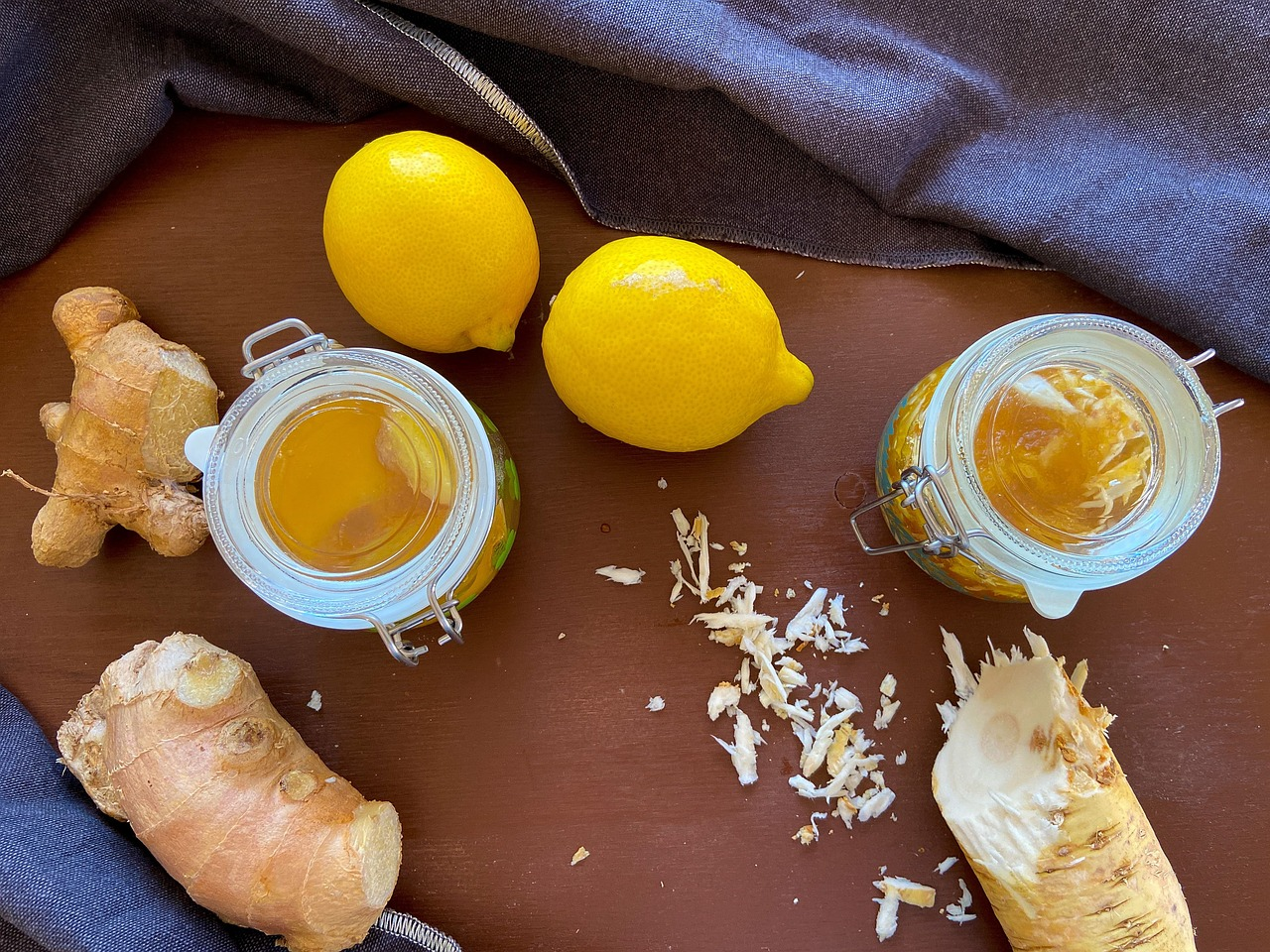8 Vocal Cord Care Tips for a Healthy Singing Voice
As a singer, whether you perform in a choir, a rock band, or even in the shower, it is crucial to learn vocal cord care tips to maintain a healthy singing voice. Your vocal health plays a significant role in your performance and can either make or break it.
Fortunately, keeping your voice healthy is not that complicated. In this blog post, we’ll explore facts about vocal cords and discuss eight of the top vocal cord care tips. With some common sense and insider knowledge of vocal health tips, you can sing confidently and perform your best.
- New Report Says Your Brain Could Be the Key to Reducing Phlegm Over 50
- Doctor's "Leave The Throat Phlegm Behind" Tutorial Goes Viral With People Over 50
- Can You Relieve Throat Phlegm and Coughing In 60 Seconds A Day? This Doctor Says Yes
- How To Banish Phlegm When 50+ (Do This Every Day)
Key Takeaways
- The vocal cords are two flexible bands of muscle tissue that sit at the entrance to the windpipe (trachea) and are responsible for producing sound.
- Various factors, including smoking, overuse, and throat clearing, can damage vocal cords.
- Taking care of your vocal cords through proper hydration, avoiding irritants, and practicing good vocal hygiene can help prevent damage and keep your voice healthy.
Vocal Cord Care: Mechanics of the Human Voice
The vocal folds or vocal cords, which are two bands of smooth muscle tissue located opposite one another in the larynx, vibrate to produce the sound of your voice. The larynx is located between the base of the tongue and the top of the trachea which is the air passage to the lungs.
When you’re not speaking, the vocal folds remain open, allowing you to breathe. But when it’s time to speak, the brain triggers events that cause the vocal folds to snap together. When air from the lungs passes through them, the vocal cords vibrate, creating sound waves that travel through the throat, nose, and mouth. These areas act as resonating cavities that help to modify the sound.
The size and shape of the vocal folds and the resonating cavities determine the quality of your voice, including its pitch, volume, and tone. That’s why everyone’s voice sounds different.
Factors That Can Damage Vocal Cords
It’s essential to be aware that allergies, smoke exposure (both first and secondhand), vocal tension, and vocal overuse and abuse (such as screaming) can all damage your voice.
When the vocal cords are irritated or inflamed, they can’t close properly, preventing you from hitting higher notes and causing a rougher, more breathy sound, regardless of the note you are singing.
Attending to vocal cord care daily is one of the best things you can do to maintain a healthy, resilient, high-quality singing voice.

Tips for Maintaining a Healthy Singing Voice
Here are the top eight tips for maintaining a healthy singing voice.
1. Always Warm Up and Cool Down Your Voice
Before singing, it is essential to warm up your voice by performing various exercises suitable for all ages, vocal ranges, and experience levels. Always start by warming up your facial muscles. You can relax your jaw muscles by blowing through your lips, sticking out your tongue, and massaging your face.
Don’t hesitate to make some noise while warming up. Let your voice wander up and down its range. Then, move on to humming or some gentle lip rolls or tongue trills. Only once you feel like your face, mouth, and voice are loosening should you start singing actual notes. The warm-up process should take between 10 and 20 minutes and shouldn’t be rushed.
Cooling down when you’re finished with your rehearsal, audition, or vocal performance is essential. While cooling down is often overlooked, it’s a simple way to support vocal health for singers. You can cool down your voice by sighing on a descending note or yawning, which raises your soft palate and releases any built-up tension. You can also practice gentle lip rolls, allowing your voice to descend gently. Take 5 or 10 minutes to cool down your voice, letting it return to its normal range.

2. Stay hydrated.
Water is the answer if you’re looking for a drink that can help you sing better. It is one of the best drinks for your singing voice. Herbal teas, but not too hot, come in second place. You should drink water throughout the day and keep a water bottle nearby during lessons and rehearsals.
Don’t assume that a sip or two of water is enough while you’re warming up. Your vocal folds work best when well lubricated, which means keeping your entire body hydrated. After all, there is no direct way to lubricate dry vocal cords. The fluids you drink or the medicated lozenges you allow to dissolve in your mouth never reach your vocal cords because your larynx is separate from your esophagus. If they weren’t separated, you’d be constantly choking.
But keeping your body well-hydrated prevents your vocal cords from drying out. Remember, dry vocal cords are easily irritated, harming your voice. The more water you drink, the better your voice will be.
If you’re not a fan of water, no problem. Many foods offer high levels of hydration, including:
- Grapes
- Watermelon
- Apple sauce
- Bell peppers
- Pears
- Apples
- Peaches
- Plums
3. Avoid throat clearing
To maintain a healthy voice, it is advisable to avoid frequent throat clearing. Clearing your throat is essentially slamming your vocal cords together forcefully, which can lead to damage. This can cause irritation and inflammation, making it difficult for the vocal folds to come together seamlessly, resulting in a breathy sound.
If you feel the need to clear your throat, it is recommended that you first take a sip of water or cough once instead. Throat clearing should only be done as a last resort to avoid damaging your vocal cords.

4. Use a humidifier regularly.
As noted above, drinking water cannot directly moisturize your vocal cords. However, breathing in properly humidified air can help boost your voice. When the air is too dry, it can be taxing on your breathing and your voice.
Therefore, it is recommended to humidify your home regularly, especially if you anticipate a heavy singing schedule, such as an upcoming concert series. A humidifier can support your respiratory health and prevent dry vocal cords.
5. Take frequent vocal naps
Just as rest days are crucial for our body after exercising, taking rest days is crucial for our voice. Your voice may become tired and prone to injury when you speak or sing excessively. Therefore, resting your voice if you feel unwell or your allergies are flaring up is recommended. Resting your voice after a long rehearsal or when preparing for an audition is also essential.
During vocal rest, it’s suggested not to talk, sing, or even whisper, which can harm your vocal cords. Resting your voice allows your delicate vocal folds to recover and heal. The longer you rest your voice, the better it will be for your vocal health. So, take a break and let your voice regenerate.

6. Avoid breathing toxic substances.
Smoking or vaping is the quickest way to damage your voice permanently. It is highly advised to avoid it.
Inhaling smoke, including secondhand smoke, exposes your vocal cords to harmful toxins. Everything you inhale, such as pollutants, pollen, and dust, passes over your vocal cords, causing irritation and dryness. Additionally, individuals who smoke are more likely to develop vocal cord cancer.
7. Don’t sing when your throat hurts.
When we experience pain, it is usually a signal from our body to stop doing what we are doing. If you are experiencing any throat discomfort, such as a sore throat, hoarse voice, or vocal strain, it is crucial to take care of your voice by taking a break from singing. Instead, give your voice some rest and drink plenty of water. Get enough sleep and take care of yourself and your voice.
Above all, do not try to power through the pain. Singing when your voice is strained or when your throat hurts can lead to serious damage to your vocal cords.

8. Use natural throat products
Regarding your voice, taking care of your throat is essential. You can find lozenges, tea, and throat spray with slippery elm, an excellent throat lubricant. Licorice and marshmallow are also great for reducing inflammation. Instead of sugar, choose products that contain glycerin and honey. While menthol is standard in throat products, it’s drying and not as beneficial as the other ingredients mentioned.
Summary
In conclusion, singers can support their vocal health by:
- Warming up and cooling down the voice
- Staying hydrated
- Avoiding throat clearing
- Using a humidifier regularly
- Taking frequent vocal naps
- Avoiding breathing toxic substances
- Don’t sing when the throat hurts
- Using natural throat products
It is advisable to seek professional help if you experience any voice-related issues. A qualified medical professional can help you identify the root cause of your voice problems and recommend the most effective treatment, including voice therapy.
Do not take your vocal health for granted; take the necessary steps to care for your voice. Your voice is your instrument, so treating it with care and respect is important.
Frequently Asked Questions
How do you keep your vocal cords healthy?
There are multiple ways to maintain the health of your vocal cords. One of the most important things you can do is drink plenty of water, particularly when exercising. If you consume caffeinated beverages or alcohol, balance your intake with ample water. Throughout the day, take vocal naps to rest your voice. Additionally, using a humidifier in your home can help keep your vocal cords healthy.
What heals vocal cords?
Laryngitis, characterized by voice box inflammation, can be acute or chronic. Acute laryngitis usually resolves on its own within a week or so. One can practice self-care measures such as voice rest, staying hydrated, and humidifying the air to aid recovery. On the other hand, chronic laryngitis requires treatment that targets underlying causes such as heartburn, smoking, or excessive alcohol consumption.
How can I repair my vocal cords naturally?
The best home remedies are straightforward: Drink water, rest your voice, and inhale steam. Drinking water hydrates the entire body and is essential for keeping the vocal cords healthy, while steam inhalation helps soothe the voice.
Is honey good for your vocal cords?
Honey can be a helpful remedy for singers recovering from strained, sore, or lost voices. However, honey can also prevent vocal problems before they occur. The thick and smooth consistency of honey coats and lubricates the throat, relieving your vocal cords and voice after a demanding performance.
- New Report Says Your Brain Could Be the Key to Reducing Phlegm Over 50
- Doctor's "Leave The Throat Phlegm Behind" Tutorial Goes Viral With People Over 50
- Can You Relieve Throat Phlegm and Coughing In 60 Seconds A Day? This Doctor Says Yes
- How To Banish Phlegm When 50+ (Do This Every Day)
Dr. Matthew Olesiak, MD, is the Chief Medical Director at SANESolution, a renowned wellness technology company dedicated to providing evidence-based solutions for optimal living. Dr. Olesiak earned his medical degree from the prestigious Jagiellonian University Medical College in Kraków, Poland, where he developed a strong foundation in medicine.





